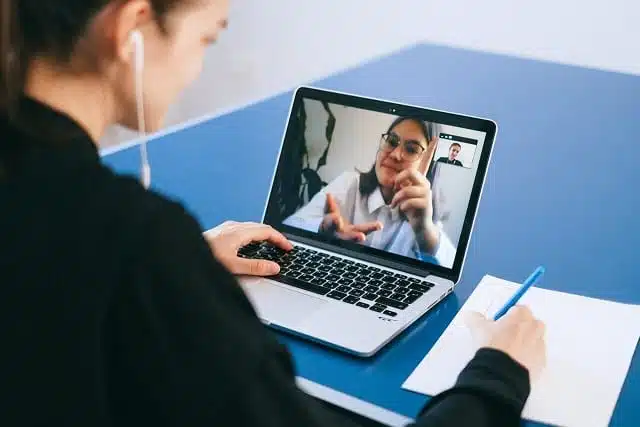[This article contains information that is useful for face-to-face dermatology appointments too, and GP appointments]
Given the ongoing coronavirus situation, many hospital dermatology teams are continuing to offer patients ‘remote appointments’, rather than face-to-face consultations in clinic. This being the case, you may be offered a telephone, an online voice or video call.
The type of remote appointment you will be offered will depend on your own access to technology (do you have a suitable smartphone or computer, say, and internet access) and the systems used by the hospital.
As a guiding principle, you should expect to receive a comparable level of care from a remote consultation as you would from a seeing a dermatologist in a face-to-face setting. Many people find remote appointments more convenient.
If you are unhappy about having a remote appointment, contact the hospital to explain why, and firmly request a face-to-face appointment instead.
Before the appointment
As with any appointment, it’s a good idea to write down a list of the questions you want to ask beforehand. Also make sure you have to hand a list of the medications you’re taking for your eczema, including any that haven’t been prescribed by the doctor.
You may be asked to send photos of affected areas of skin before the appointment. Try to take your pictures during the day in natural light, to get the best quality. To show the size of eczema patches, you could place a coin next to them when taking photos. You might need to ask someone else to take photos for you – it can be difficult to take good photos of your own skin.
Before the remote appointment, make sure the phone, tablet or computer you are using is charged. If possible, find somewhere quiet to speak to the doctor where you won’t be disturbed, and have some toys at hand for children to play with if you are looking after younger ones.
During the appointment
Be clear with the dermatologist about what you hope to achieve for yourself or child from the consultation. Tell them about how the eczema is affecting all aspects of your life, including psychologically.
If you are prescribed medication, be sure you fully understand exactly how it should be used (for example, how long should it be taken for? Can it be used alongside your other treatments?). Also ask how you will collect your prescription. Will it be sent directly to you or your local pharmacy, for example?
Ask about how you can contact the hospital dermatology team for advice if your symptoms don’t improve or worsen, and when you can expect to see the dermatologist again for a routine appointment if applicable.
It can help to take notes during the appointment, to refer to later.
After the appointment
After the appointment you may be offered a face-to-face appointment, if it wasn’t possible to do everything needed or follow-up investigations are required.
Take photos of your skin before you start a new medication, so you will have a record of how the skin looked before you started using it, which can be compared to photos you take during and after use.
The British Association of Dermatologists has produced detailed advice for patients called ‘Guidance for dermatology patients for remote consultations’.

